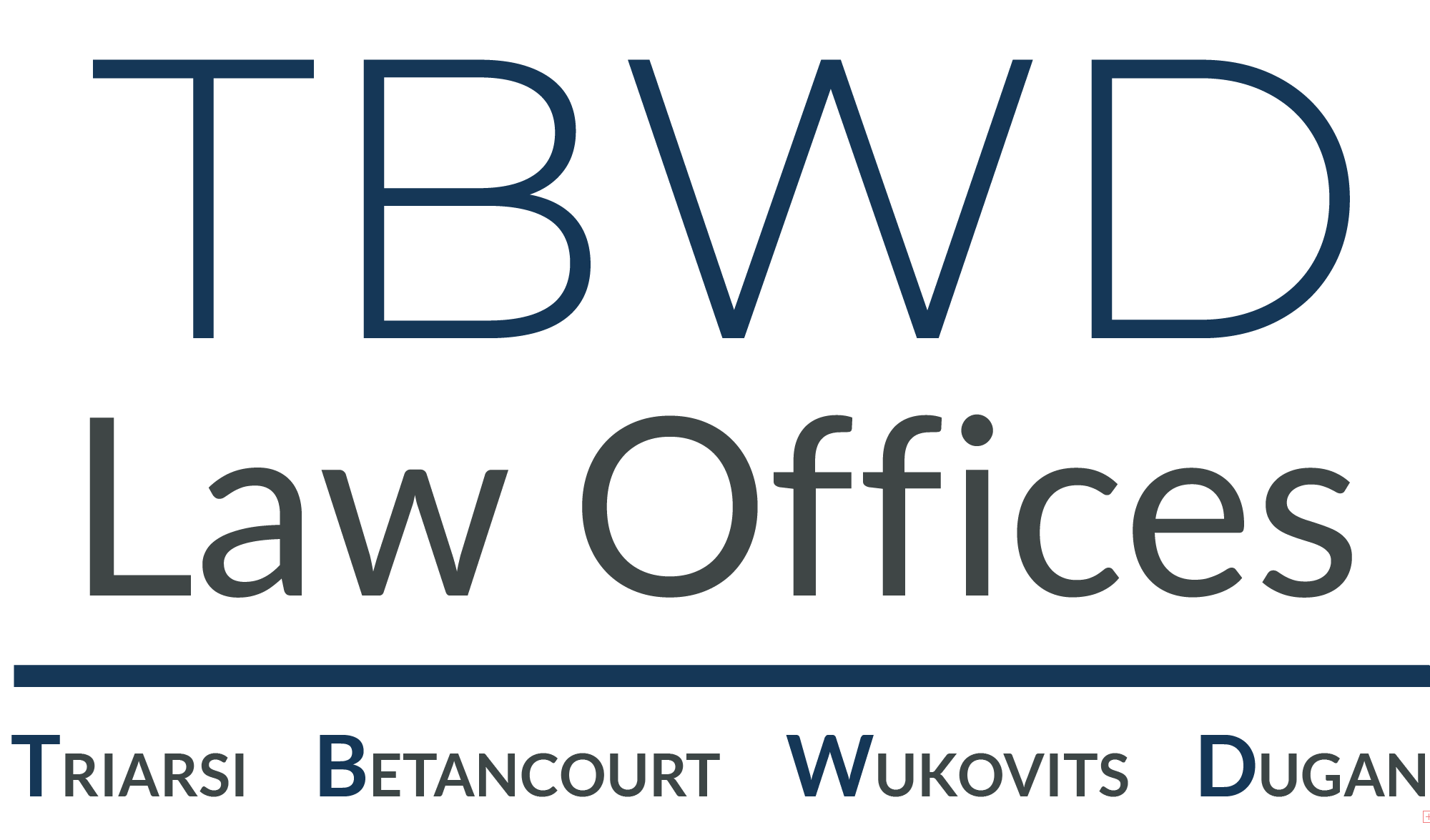The above is a typical question often time posted by a criminal defendant and/or their family members after pretrial release is denied by the judge. My answer to this question is “maybe” … and I will explain why.
Court Rule 3A was adopted and became effective January 2017, to implement the pretrial detention system codified by the New Jersey Bail Reform Act, N.J.S.A. 2A:162-15 to 2A:162-26. R. 3:4A (comments). Pursuant to R. 3:4A(a), “[a] prosecutor may file a motion at any time seeking the pretrial detention of a defendant for whom a complaint-warrant or warrant on indictment issued for an initial charge involving an indictable offense….”
R. 3:4A(b)(3), however, provides that:
“[a] hearing may be reopened at any time before trial if the court finds that information exists that was not known by the prosecutor or defendant at the time of the hearing and that information has a material bearing on the issue of whether there are conditions of release that will reasonably assure the defendant’s appearance in court when required, the protection of the safety of any other person or the community or that the defendant will not obstruct or attempt to obstruct the criminal process.”
In making its initial determination to detain a defendant, the Court will rely upon the filed complaint, PSA, PLEIR, the defendant’s in-and-out-of-state criminal case history, a police investigation report, defendant’s brief (should defense counsel submit one), the State’s documentation in support of pretrial detention, and the oral arguments of counsel, namely the prosecutor and criminal defense counsel. The Court will then decide the state’s initial motion for pretrial detention, by way of a clear and convincing evidence standard.
Here is the important part … should defense counsel later receive favorable evidence through the discovery process with prosecutors and/or the defense’s investigation reveals material changes in circumstances that have significantly weakened the State’s case, a motion to reopen the pretrial detention issue may be filed with the Court.
Court Rule 3:4A-(b)4 through (b)5 provides that a defendant enjoys a presumption of pretrial release unless probable cause is established that the defendant (i) committed murder pursuant to N.J.S.A. 2C:11-3; or (ii) committed any crime for which the defendant would be subject to an ordinary or extended term of life imprisonment, in which cases, the defendant would be subjected to a presumption of pretrial detention.
The Public Safety Assessment [PSA] is a non-dispositive tool to help guide judges in making the initial release/detention decision. The device employs a calculus which allocates points with respect to nine relevant factors that must be considered when making the initial release decision. The calculus is simple, the greater the points the more restrictive the recommendation becomes. The nine factors include (i) the age of the defendant at the time of the current arrest, (ii) current violent offense, (iii) pending charges at the time of arrest, (iv) prior misdemeanor convictions, (v) prior felony convictions, (vi) prior violent convictions, (vii) prior failure to appear for court appearances in the past two-years or (viii) greater than two-years, and (ix) any prior sentences to incarceration greater than 14-days.
When a defendant does not have a criminal history and there is no probable cause to believe the defendant committed murder or the defendant is not subject to an extended term/life in prison, the calculus is rudimentary and the pretrial service office’s recommendation should be “for release”. The holdings in State v. Mercedes, State v. Travis, and State v. C.W., further provides that a defendant cannot be detained solely based upon the nature and circumstances of the alleged offense(s).
However, pursuant to N.J.S.A. 2A:162-20, the trial court, in making its pretrial detention determination, is allowed to consider (a) the nature and circumstances of the offense charged and (b) the weight of the evidence against the defendant. The conduct underlying the crime can be considered. In some cases, that evidence may be “weighty”; in others, the proofs may suggest the case is weak. Both of those factors are appropriate to consider. State v. Mercedes, 233 N.J. 152, 172 (2018).
R. 2A:162-17 provides:
b. (1) If the court does not find, after consideration, that the release described in subsection a. of this section will reasonably assure the eligible defendant’s appearance in court when required, the protection of the safety of any other person or the community, and that the eligible defendant will not obstruct or attempt to obstruct the criminal justice process, the court may order the pretrial release of the eligible defendant subject to the following:
. . .
(d) any one or more non-monetary conditions as set forth in paragraph (2) of this subsection.
(2) The non-monetary condition or conditions of a pretrial release ordered by the court pursuant to this paragraph shall be the least restrictive condition, or combination of conditions, that the court determines will reasonably assure the eligible defendant’s appearance in court when required, the protection of the safety of any other person or the community, and that the eligible defendant will not obstruct or attempt to obstruct the criminal justice process, which may include that the eligible defendant:
(a) remain in the custody of a designated person, who agrees to assume supervision and to report any violation of a release condition to the court, if the designated person is able to reasonably assure the court that the eligible defendant will appear in court when required, will not pose a danger to the safety of any other person or the community, and will not obstruct or attempt to obstruct the criminal justice process;
(b) maintain employment, or, if unemployed, actively seek employment;
(c) maintain or commence an educational program;
(d) abide by specified restrictions on personal associations, place of abode, or travel;
(e) report on a regular basis to a designated law enforcement agency, or other agency, or pretrial services program;
(f) comply with a specified curfew;
(g) refrain from possessing a firearm, destructive device, or other dangerous weapon;
(h) refrain from excessive use of alcohol, or any unlawful use of a narcotic drug or other controlled substance without a prescription by a licensed medical practitioner;
(i) undergo available medical, psychological, or psychiatric treatment, including treatment for drug or alcohol dependency, and remain in a specified institution if required for that purpose;
(j) return to custody for specified hours following release for employment, schooling, or other limited purposes;
(k) be placed in a pretrial home supervision capacity with or without the use of an approved electronic monitoring device. The court may order the eligible defendant to pay all or a portion of the costs of the electronic monitoring, but the court may waive the payment for an eligible defendant who is indigent and who has demonstrated to the court an inability to pay all or a portion of the costs; or
(l) satisfy any other condition that is necessary to reasonably assure the eligible defendant’s appearance in court when required, the protection of the safety of any other person or the community, and that the eligible defendant will not obstruct or attempt to obstruct the criminal justice process, which shall not include any prohibition or restriction concerning manufacturing, distributing, or dispensing, or possessing or having under control with intent to manufacture, distribute, or dispense, marijuana or hashish in violation of paragraph (12) of subsection b. of N.J.S. 2C:35-5, or possession of marijuana or hashish in violation of paragraph (3) of subsection a. of N.J.S. 2C:35-10.
In further position that the defendant should be released once “material changes in circumstances” can be posited by the defense, defense counsel should further consider the Court’s allowance for a so called custodian, employment, specified restrictions on the client’s personal associations, place of abode, or travel, in addition to any curfew that may be imposed by the Court and/or any in-person or virtual reporting requirements. (Note: Electronic monitoring devices are rarely ordered in State cases.)
Placing a defendant on pretrial release is designed to strike a balance between the Court’s interests in assuring the defendant’s appearance for legal proceedings when required, the protection and safety of the general public, and mitigate any concerns for obstruction of justice, along with the defendant’s interest in defending the charges against them while being monitored under the LEAST RESTRICTIVE MEANS possible.
In the past, my law firm has been very successful in securing a criminal defendant’s release even after they were initially detained by the Court. The biggest keys are to find evidence in the provided discovery favorable to the client, to conduct a proper investigation exposing weakness in the State’s case, and to advance some balance between the Court’s concerns & the defendant’s interests.

